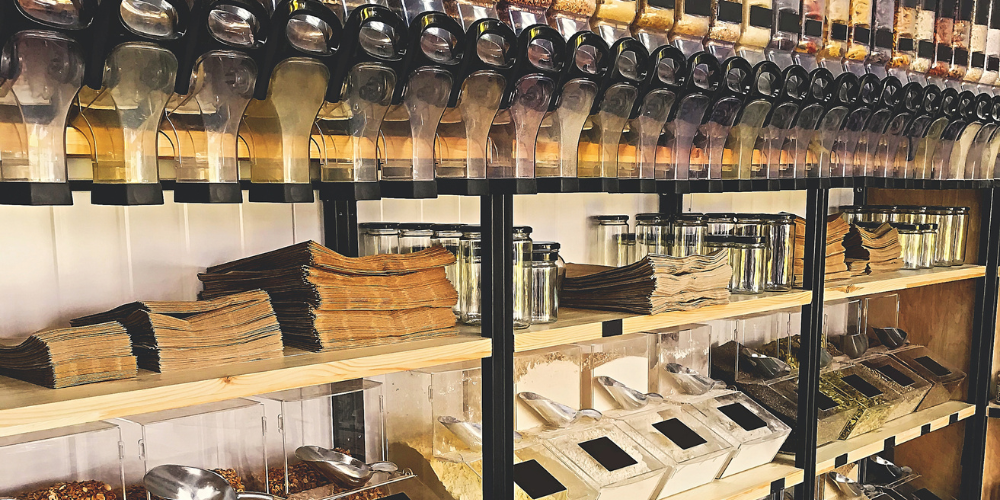12 Tips to Help You Quit Plastics This July

This Plastic Free July, explore the best tips and tricks from Eco-Cycle that can help YOU quit plastic! Here are 12 ideas to try and curb plastic use in your everyday life:
Refuse:
- Avoid Single-Use: When ordering takeout or delivery, look for any options on the order platform to opt out of utensils and other disposables, like napkins and straws. Or, put your request for NO straws, utensils, napkins, etc. in your delivery notes.
- Skip the Swag: When visiting festivals, markets, and conferences, avoid taking home any plastic-laden freebies (like stickers and buttons) that tend to quickly become trash. Producers are responsible for a large proportion of the plastics crisis, and if the demand on this type of marketing goes down enough, companies may rethink that expense the following year.
- No Receipt, Please: Many people don’t know that some paper items, including receipts, have petrochemicals in them, and aren’t recyclable. Choose digital receipts instead—or no receipt at all!
Reduce:
- Consume with Care: If you do choose to buy products packaged in plastic, be selective about what you are purchasing. Try to limit your purchases to products that really don’t have other packaging options available. For example, certain medications only come in blister-packaging, where the dose is separated out by a push-through mechanism that plays an important role in the health sector.
- Not All Plastics Are Created Equal: Some plastics are more recyclable than others. Avoid buying anything packaged in #3, 6, or 7 or black plastic. Check out our Quick Guide to Plastics to learn more about the different types of plastic and where you will most often find them.
- Leverage the Economies of Scale: Larger containers require less plastic relative to their contents than their pint-size cousins, and often save you money, too. For instance, when it comes to housekeeping, you can avoid sending plastic spray nozzles to the landfill by buying gallon-size jugs of ingredients such as castile soap to make your own cleaning products. Follow our easy, nontoxic recipes and reuse the same spray bottle over and over to keep your space sparkling clean, green and toxin free!
Reuse:
- Waste Not, Want Not: Some plastic containers can be reused for shopping in bulk aisles or at bulk stores! They’re less likely to break than glass, and are lighter to transport if you’re traveling by foot or bike. Plastic containers also make great to-go ware, preventing the need to buy fancy new containers for this purpose.
- Declutter Your Space: Organize your stuff by sorting small goods into upcycled plastic containers—ideally clear ones so you can easily see what’s inside!
- Give It Another Grow: After spring planting, the black and green plastic plant pots pile up! Rather than recycling them, take them back to the farmer or nursery where you bought your plants, in most cases they are very happy to receive them for reuse next growing season.
Recycle:
- Pass the Glass: Skip plastic packaging by choosing a comparable product packaged in glass, which is infinitely recyclable! Want to go a step further? Reach out to your favorite brands that only use plastic packaging, and let them know they would keep your business if they changed their packaging to be more sustainable.
- Can You Do a Can-Can? Steel and aluminum are also good packaging alternatives to plastic and can be recycled indefinitely! Not only is metal made for recycling in a way that plastic simply isn’t, the markets for aluminum and steel tend to be stronger because recycling metal saves so much energy and natural resources compared to making the same products from virgin materials.
- We Speak for the Trees: Paper is another recycling success story, and can be an effective alternative to plastic packaging. Just be sure to keep an eye out for sneaky paper that is covered in plastic, such as frozen food boxes and paper coffee cups.
Hungry for more tips? Check out our How to Quit Plastics Workbook to learn more.



























